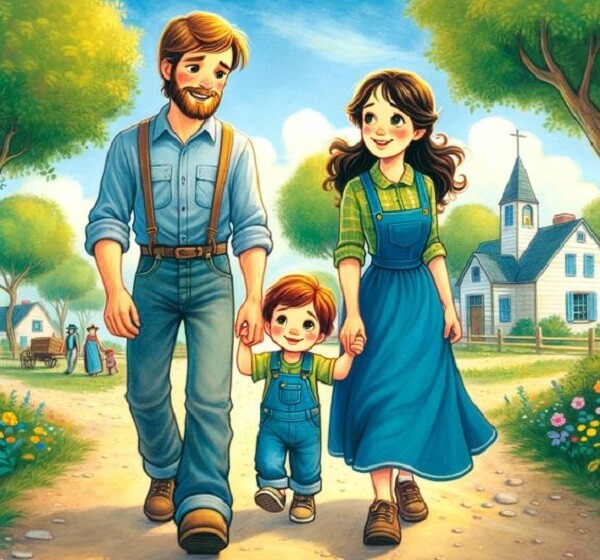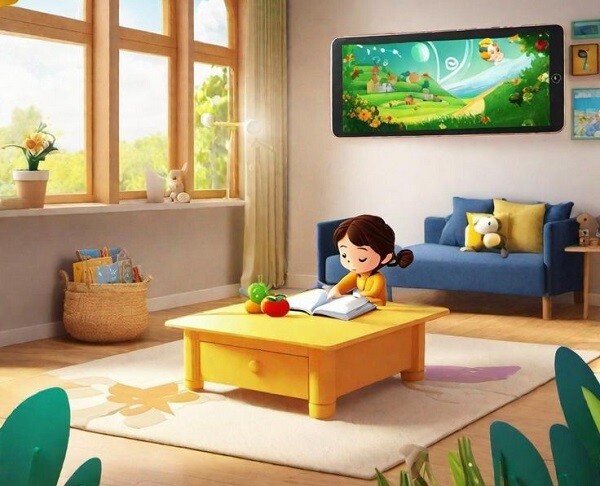The birth of a child is a momentous occasion. Imagine, on a warm spring morning filled with floral fragrances, or on an autumn night with a moon so bright that the silver light covers the earth, the arrival of a new life seems to always coincide with the beauty of this world.
Many people believe that “there is an opportune time to have a baby.” Although this is not a scientifically proven rule, it has been ingrained in our minds and passed down through the ages, carrying infinite expectations for life.
Let’s put aside our busy modern lives for a moment and travel through the corridors of time and space to discover the three most beautiful moments considered the arrival of a “grateful child.”
In these specific moments, the wisdom of our ancestors and the emotions of modern people blend, weaving warm and hopeful pictures. Specifically, there are three opportune times when children are believed to be born into prosperity, know filial piety, and have great prospects for the future.

When parents are of a suitable age to have a child, the child will thrive like a spring bud.
For mothers, the best age to have a baby is between 23 and 30.
At this age, the reproductive organs, bones, and nervous system have fully matured, and reproductive functions are at their peak. The high quality of eggs contributes to the baby’s healthy development. Additionally, the rates of miscarriage, premature birth, and birth defects are relatively low. Moreover, mothers at this age tend to have better physical health and a lower risk of experiencing a difficult labor.
For fathers, the optimal age range for having a child is between 25 and 35.
During these years, a man’s physical strength and vitality are at their highest, and the quality of his sperm is optimal, which benefits the health of the next generation.
Modern medicine also confirms that welcoming a new life at the right age ensures that both parents will not only have abundant energy but also be at the peak of their lives, with the added bonus of positive genetic influences. This combination enables children to make remarkable leaps in both intelligence and physical development.
When both parents are in their prime, it’s like the sun rising, filling their world with vitality and hope.

When parents are of a suitable age to have a child.
The father embodies determination, stability, and reliability, while the mother exudes optimism, gentleness, and sensitivity. This combination provides the child with a nurturing and guiding force as they navigate through life.
Their love is like a gentle drizzle that silently nourishes all living things, and their guidance is like a beacon illuminating the path forward, ensuring the child doesn’t stray.
Children raised in such an environment are like spring buds basking in the warm sunlight. They grow in a garden of love, where each leaf shines with vitality, and each branch holds infinite potential.
These children are not only physically healthy but also rich in spirit, brimming with curiosity, and eager for a promising future. Their potential is limitless.
As the saying goes, “As you sow, so shall you reap.” The words and actions of parents are the best living textbook for their children.

When the family’s economic situation is stable, the child enjoys a life of abundance like the fruits of autumn.
Throughout history, countless stories have shown us the impact of a family’s financial status on a child’s upbringing.
If we look back at ancient times, we’ll find that our ancestors recognized the strong connection between material foundations and spiritual pursuits.
Over the centuries, there have been numerous examples of exceptional talents nurtured within wealthy families. Mengzi’s mother, for instance, moved houses three times to provide him with the best educational environment, and he eventually became a great thinker. This story showcases a mother’s wisdom in utilizing her family’s economic resources and her deep concern for her child’s development.
In modern times, children from financially stable families tend to have better access to educational resources and extracurricular activities, which foster their talents and potential.

A stable family economy.
However, financial stability is not the sole determinant of a child’s future. Many children who have grown up in challenging circumstances have demonstrated remarkable resilience and talent.
Today, countless children from impoverished backgrounds have risen through their relentless efforts. Their stories teach us that even with limited financial means, a person can overcome difficulties and realize their self-worth if they have dreams and aspirations.
Nonetheless, it’s undeniable that a stable economic environment provides more opportunities for a child’s development. Just like the fruits of autumn, which are harvested after a period of blossoming, a stable family economy fosters self-confidence, joy, and good morals—all of which are invaluable assets.

When the family is harmonious, the child is like a warm ray of sunshine in winter, warming hearts.
The ancient proverb says, “A harmonious family brings forth blessings, while a dysfunctional family invites disasters.” Achieving harmony within the family was considered just as important as self-cultivation and governing a country.
Family harmony directly influences the spiritual growth and social adaptability of each member.
When parents treat each other with respect, the family atmosphere becomes as gentle as a spring breeze, and children thrive in this warm environment.
In such a family, children learn to care for others, understand, and be tolerant. These virtues, like seeds, take root and grow into towering trees within their hearts.
The saying, “Parents are a child’s first teacher,” is simple yet profound, highlighting the importance of family education. Every smile, word of encouragement, and act of understanding from parents becomes a valuable asset in a child’s journey to adulthood.
In this family atmosphere, children are like warm rays of winter sunshine, not only warming themselves but also spreading this warmth to those around them. They become an indispensable source of positive energy in society.

A harmonious family.
Overall, the phrase “a grateful child” is the most fitting description for children raised in such an environment.
Children who are grateful and reciprocate their parents’ love are the fruits of a harmonious family education and the foundation for a stable and prosperous society.
“A harmonious family brings prosperity.” In today’s rapidly changing world, let’s embrace the wisdom of our ancestors, pay attention to building harmonious families, and create an atmosphere of peace and prosperity so that our children can shine even brighter in this new era.
While these three moments are considered “opportune times,” it’s important to note that while natural timing is crucial, human factors cannot be overlooked.
Every child is unique, and their development is influenced by both external factors and their own efforts, as well as the guidance they receive from their parents.
Children, regardless of when they are born, can become a source of pride for their families and build a bright future if they receive abundant love and wise guidance.
This information is for reference only and is not intended as professional advice.
“The First Eight Years: Nurturing Your Child’s Character Development”
“Don’t worry if you can’t build a house yet; focus on building yourself first. Investing in self-improvement will save you a fortune in the long run, and the results will be well worth the wait. The first eight years of a child’s life are crucial, so parents must prioritize accompanying their children during this formative period.”





































